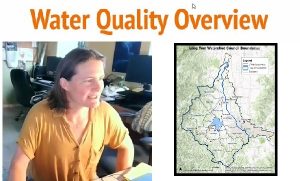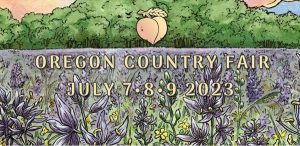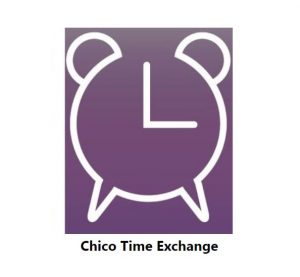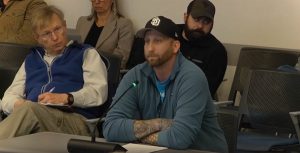Stephen Cole encourages you to take your opponent out…to lunch
9 min read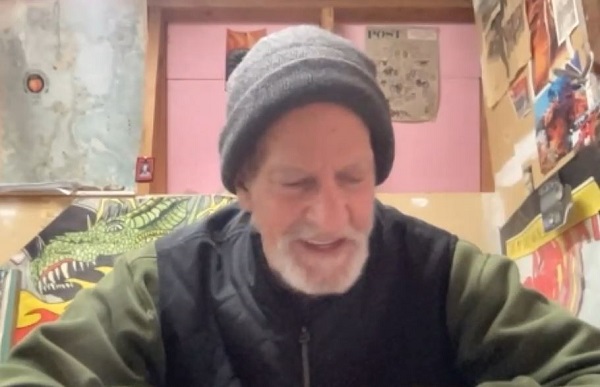
Author Stephen Cole: His new book, Full Crazy Town, looks at an increasingly polarized America, where family members can no longer talk to one another. He has an idea which he calls, “Take your opponent out…to lunch.”
Stephen Cole: I’m Stephen Cole. I knew that some kind of a reconnection with family and friends was necessary on a massive scale. That’s when I came up with ‘Take your opponent out to lunch.’ Participants register, sign up, submit bios, submit history of relationships and a plan for reconciliation over a burrito, maybe. Then the real fun begins. Getting back the results of these rendezvous.
John Q: The resulting podcasts will serve as a sequel to his book, which he says, started off in a completely different direction.
[00:00:57] Stephen Cole: My original idea was called ‘Write A Book With Me.’ In 2012, I began compiling my journals. that I’d been keeping since I was 12 years old. I mean to tell you, this took a long time because of the many trips down memory lane. And then I began to wonder if there were others who wanted to share their experiences. I knew a lot of friends from the tree planting cooperative Hoedads that I was a member of, and from the Oregon Country Fair (OCF) where I worked as a security crew coordinator—the OCF Navy security on the Long Tom River—for over 40 years. And I knew a lot of these people, Hoedads and OCFers, were from the Midwest, because we’d talk, we’d know where we’re from, and they came to Eugene in the mid-1970s, like I did. So I was really curious.
[00:01:58] I came up with an idea for a group project: ‘Write A Book With Me,’ about what made them pull up roots and move to the Pacific Northwest. The book was supposed to include biographies, stories about growing up, lessons learned, plus any adages, homilies, metaphors, words of wisdom, and/or funny stories. I did get a few nibbles from friends and extended family members.
[00:02:27] But despite my encouragement and suggestions, no one really wanted to participate. However, the feedback that I got regarding what made them move to Eugene had a common theme.
[00:02:43] On April 17, 1970, I saw Steppenwolf in concert at the University of Kentucky where I was majoring in business administration. A few days later was the first Earth Day. Next day, my 20th birthday. Then I saw the movie M*A*S*H and soon after that, the Kent State killings.
[00:03:07] Not long after that, I attended an anti-war demonstration in D.C., even though my mother begged me not to go.
[00:03:16] So, the Kent State massacre was the common theme that got many of my friends to relocate to Eugene.
[00:03:26] One of the people who are going to participate in the ‘Write A Book With Me’ was going to Kent State at that time. And he also talked about how his favorite bar at Kent State was, The James Gang was the house band.
[00:03:44] John Q: The lead singer was Joe Walsh.
[00:03:47] Stephen Cole: My older sister used to have long debate arguments at the dinner table with my dad about Kent State and similar topics, you know, hippies versus the cops-type stuff. And sometimes he’d dress her down and send her crying out of the room in the middle of dinner.
[00:04:07] And I remember what he said when she was saying, you know, ‘How could these National Guard soldiers just shoot unarmed protesters?’ And they, and even like one of the persons who died, one of the four students who died was just walking by, it was like, just, stray gunfire. And Dad said, ‘Betsy, those soldiers were scared.’
And it’s just like, you know, it’s the stock standard argument, like when she would argue against nukes, he’d say, ‘The French have dozens of nuclear plants, and they live right next to them, happy as clams.’ So these stock standard replies, any context, any backstory, any other details just get, you know, if you try to mention that, you just get interrupted or shouted down.
[00:05:02] Right after I graduated from college, I took off on a one-year wanderjahre across Europe and Asia, and when I came back, I didn’t really know what to do, but it kind of changed me.
[00:05:16] I mean, I really saw that the rest of the world saw the United States as the great Satan, and I thought, ‘Yeah, boy, you know, I don’t really want to,’ you know, I majored in business administration, but I didn’t really want to work in a bank or sell insurance or anything like that.
[00:05:35] So, my sister was going with a guy who was a chef in Boston, and they decided to connect with his friends in Atlanta, Georgia, three Jewish guys who were starting a juice bar in a nightclub on Peachtree Street called The Electric Ballroom. And I worked there with them. There was a juice bar and a natural food store called the Egg and Lotus during the daytime, and then at night we worked in the juice bar, sandwich, juice and sandwich bar in the nightclub for three years.
[00:06:15] But it was ‘life in the fast lane, surely make you lose your mind.’ There was so much drugs, sex, and rock and roll that I saw people just commit suicide, get shot, get arrested, get depression, get crazy. And I just felt like if I stuck with it, pretty soon it would happen to me, even though I tried to keep cocaine at arm’s length. I really tried not to go whole hog that route.
[00:06:42] Because Jack, my sister’s boyfriend, was dealing coke. In fact, he was selling it to musicians who would come into The Electric Ballroom to play. And, we had a code word for it.
[00:06:56] People would call the house—we had a communal house and had a code word for it, was ‘more.’ Got any ‘more?’ Oh, yeah, we got some ‘more.’ There’s never enough, is what the lesson was for me. And so about 1975, my sister relocated to Portland, Oregon and became a teacher.
[00:07:22] So I’d go out to Wenatchee, Washington and pick fruit in the fall and then visit her for a month or so on my way to Mexico to make my fruit-picking money last the winter. And then we had friends in Key West and Florida and still had friends in Atlanta. And so I would come back and visit them in the springtime and summer and just goof off and then, do it again.
[00:07:51] We had these drive-away cars where they would pay gas to, if you drive 500 miles a day and take a car from the Midwest somewhere to usually California. So I’d get there that way, head up to Washington state, pick fruit, see my sister, go to Mexico, go to Key West, go to Orlando and did that for a couple of years.
[00:08:16] And every time I went through Eugene, I was impressed with the alternative scene. And a lot of people, were entranced by the Summer of Love and the hippie scene in San Francisco, Haight-Ashbury, but there was also a big movement because I remember the hippies declared ‘Death of the hippie’ in 1968 or something like that because so many scammers were moving to San Fran and making money off the gullible hippies and just exploitation.
[00:08:50] And Eugene became like Plan B for a lot of those people who went to San Francisco, got disillusioned, and heard about the alternative scene in Eugene. And every time I went through, I was fairly impressed. So in ‘77, in March of ‘77, I left from Key West to go to Eugene to become a tree planter. And I started with a private contractor and kind of got my legs under me and ability to plant trees, and then I was able to hear about the Hoedads.
[00:09:30] And there was a crew (this is a crazy story), there was a crew in Oakridge that was part of Hoedads, but they were ex-workers from the Hines Lumber Mill that closed a few years earlier. And they said, ‘We want work and give us local work here.’ There were two ranger stations in Oakridge, still are, Rigdon (Note: It’s now part of the Middle Fork Ranger District) and Oakridge Ranger Districts. And they said, ‘We don’t want to travel,’ because most Hoedads traveled to Idaho and Montana in the spring and even into the Rockies in the summer to plant trees as the snow line went up.
[00:10:13] A friend of mine, three of us, went from the private contractor to the Hoedad-affiliated Oakridge crew, but it was like joining a motorcycle gang. The one head honcho was John Schroeder, who turned out to be the Masked Rapist at the University of Oregon in 1978 or -9, something like that, and he had a bunch of his friends that were all kind of scamming off everybody because kids would come and join up and plant for a few days or a few weeks.
[00:10:51] And Schroeder would terrorize them and run them off. They’d ask for money, and they’d, ‘What do you mean? You owe me money! You’re such a con! Get out of here!’ And he’d chase them off. And he would just take the money, take the money, take the money. Maybe give out a little bit to his crony friends there.
[00:11:09] But the one guy that I went to that crew with, and in fact when we joined, they were called ‘Treeverts.’ That was Schroeder’s idea. And so we went, ‘Oh man, I’m not going to work for a company called Treeverts.’ So, there was a hippy-dippy kid from Oakridge and he said, ‘Let’s call ours, let’s call it Sunburst.’
[00:11:32] All right, Sunburst. And everybody knew Schroeder and his cronies were just absolute culls. You know, every time you looked at Schroeder, he was standing up looking around the unit, looking to see who was looking at him. And if you looked at him, he quickly bent over and acted like he was planting trees.
[00:11:51] So my friend Richard and I figured, you know, that guy’s a cull. I bet he’s lying on his tree count. And we had a bylaw that said if you get caught stashing trees or lying on your tree count, and there’s somebody to verify, it’s an automatic expulsion. No questions asked.
[00:12:10] So, we had to bag up at a different location where we were planting because our, we had a half-blind inspector. Now, that’s a story in itself. We had a half-blind inspector who couldn’t drive in the pre-dawn darkness and we had to get the early start because it was April or May and we would get burned out by 10 o’clock. Too much sun. You can’t expose the roots to sun or it kills them like that. So we went to this one location where another crew was bagging up and planting.
[00:12:49] And we bagged up there and put our tree bags into the back of the crummy. And Richard came up, called me over and said, ‘Here’s Schroeder’s tree bag. How many bundles of 50 do you see?’ And I said, ‘Four.’ He said, ‘Okay, hold that thought.’ So at the end of the day, we’re asking everybody how many trees you planted.
[00:13:13] And Schroeder says, ‘250.’ And I said, ‘Did you get any trees from anybody?’ He said, ‘No.’
‘Meeting at the cafe as soon as we get into town, mandatory meeting.’ Richard said what he said, I said what I said and saw, Schroeder, boom, off the crew, his four or five, horrible criminal cronies left with him.
[00:13:39] And, we went from being a Hoedad, or an Oakridge-only Hoedad crew to a regular Hoedad crew that wanted to travel and do everything that other crews wanted to do. And we renamed the crew Westfir. Westfir. Quite a story.
[00:14:03] Oh, the ‘Masked Rapist.’ He would tie these, like these women who had like two or three of them sharing a house or an apartment, he’d tie him up, rape them, and then, like, just keep it going for like a day or two.
[00:14:23] He’d walk around, no clothes on, cleaning out the refrigerator, raping, terrorizing. And what got him, what they said they got Schroeder on forensics, was bite marks in the cheese.
[00:14:43] Oh, he was such a cull. First guy to ever escape from the new Eugene jail that they built there on 5th Street. He lost enough weight, he could squeeze out through the bars when he broke out the window. Escaped and was caught about a week later when he was starving, turned himself in, basically.
[00:15:03] John Q: From the Westfir Hoedad crew, longtime member of the OCF Navy on the Long Tom River, Stephen Cole. His latest book, Full Crazy Town, suggests take your opponent out…to lunch. To get started, fill out his online form.

